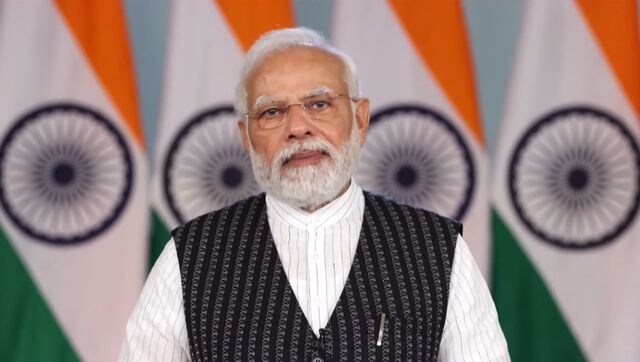Why organisational silence is often embarrassing and may be crippling for companies
Silence may change to indifference and gradual abandonment if the commitment-related silence is not duly acknowledged by the leadership

Organisational silence can harm firms if not addressed. Image courtesy Wikimedia Commons
Rakesh is a Team Lead. His boss wishes to meet the team. The boss wishes to listen to the team’s ideas, constraints, solutions and other good news – personal or official. Incidentally, the team members largely stay silent during the meet. The boss is embarrassed. Even Rakesh is embarrassed. The silence of his team affect his career. The silence may imply whatever – incompetence or indifference; lack of motivation or fear of something; tired of suggesting or a mark of protest. Irrespective of the case, business would suffer. Rakesh is also likely to suffer. Organisational silence can be crippling.
Recently, India’s largest domestic airlines, IndiGo, witnessed delay in 55 per cent of its flights. The reason being mass leave by crew members as they reported sick. Such a large number of crew members applying for leave is unheard. Incidentally, Tata-owned Air India’s recruitment drive was scheduled on the same day. People see high correlation between the two events. Can one sense organisational silence here?
IndiGo reported that it will look into the matter. InterGlobe, the parent company of IndiGo, is the largest domestic carrier with 47 per cent market share. But, all is not well at InterGlobe. During the pandemic salaries of pilots was slashed by 30 per cent. In April the salaries were revised upwards by 6.5 per cent. Many pilots had shown resentment on this meagre hike. Problems at InterGlobe persisted even before the pandemic. The power tussle between the co-founders in 2019 led to a massive decline in the share price. Looking beyond the declining share price, the cost of such internal conflicts usually spills over to society and doesn’t remain confined to founders only. The ‘organizational silence’ that led to 55 per cent of flights getting delayed inflicted a cost on flyers.
Organisational silence is a cost to the society
Political coups often offer themselves a good depiction of organisational silence. The recent change in leadership in one of the states shows that the dissidence brewed and grew in silence. During this period the state machinery’s work must have suffered. Generally, during such situations, several important decisions of the government may get deferred or may even get altered. Abrupt changes in decisions generally result in significant economic losses for the state and its residents. Delayed projects have a direct bearing on interest cost which may even turn a project unviable.
Silence may prevail as a response to new leadership. The silence often becomes the sound of death knell for someone’s business or career. Silence may not always harm the organisation. Researches show that commitment often brings silence which is good for the growth of the organisation. Silence may change to indifference and gradual abandonment if the commitment-related silence is not duly acknowledged by the leadership.
During periods of leadership changes, there may be a high probability of observing such silence. People assuming power may often neglect it. Power corrupts, power distances and power deafens too. When power deafens the leader, the organisations go silent. Supply curve of committed hours of work and innovative ideas tends to retract. ‘The Great Resignation’ may be an example of the retracting labour supply curve. The shrinking labour results in the underutilisation of the capital invested in the organisation. The cost of production thus rises. This increased cost of production, emanating from inefficiency, is a cost to the society.
Deafening silence breeds ‘deathening’ silence
Way back in May 2003, HBR published an article ‘Is silence killing your company?’ The authors Leslie A Perlow and Stephanie Williams say that silence, though it is ubiquitous and expected in organisations, exacts a heavy cost to the firm as well as the individual. Heavy cost emanates from contaminated interactions, shutting down creativity that together undermines productivity. The article emphasises that many individuals who express their concerns may be marginalized and made to feel irrelevant. This feeling of irrelevance demotivates the individual and the co-workers which undermines productivity and future growth.
Bheeshma Pitamah could have prevented the attempt of disrobing Draupadi but didn’t utter a word. Couldn’t he muster enough courage? Being the bravest, greatest and the eldest, he couldn’t have lacked courage. Did he lack the will? Not just him, Dronacharya, Kripacharya and Vidur all watched in muted silence. Did Dhritrashtra’s weakness coupled with Duryodhan’s longstanding obstinacy made them feel irrelevant? Demotivation caused to Bheeshma, Kripacharya and Dronacharya could be instrumental in the defeat of Kauravas. Kuru Vansh perished under the weight of this silence.
These are testing times for companies as they experience record high inflation due to supply chain disruptions in wake of the continued virus menace and the Ukraine-Russia war. Companies need to be at their efficient best to offset commodity price-led inflation. They can’t afford inefficiency creeping through the organisation’s silence. Time will tell which companies will survive or which will perish in this test of efficiency. Meanwhile, let’s talk and walk across the turbulence.
The author is a Professor of Economics at Great Lakes Institute of Management. Views are personal.
Read all the Latest News, Trending News, Cricket News, Bollywood News,
India News and Entertainment News here. Follow us on Facebook, Twitter and Instagram.
also read

Overworked, underpaid, abused: The chilling tales of torture of Indian domestic help
BJP Jharkhand leader Seema Patra has been arrested for allegedly abusing and torturing her domestic help, Sunita. This incident yet again raises concerns about the treatment meted out to house help

Modinomics, 13.5% growth rate, and how India raced past Britain
That India at $3.5 trillion overtook the UK at $3.2 trillion, to become world’s fifth largest economy, is an endorsement of how Prime Minister Narendra Modi deftly steered India amidst multipronged challenges in the last few years

More US flights on offer, premium economy class on cards: Significance of Air India’s fleet expansion
The planes being leased include 21 Airbus A320 neos, four Airbus A321 neos and five Boeing B777-200LRs. The induction of wide-bodied planes will allow Air India to offer premium economy class –currently only available in Vistara – for the first time